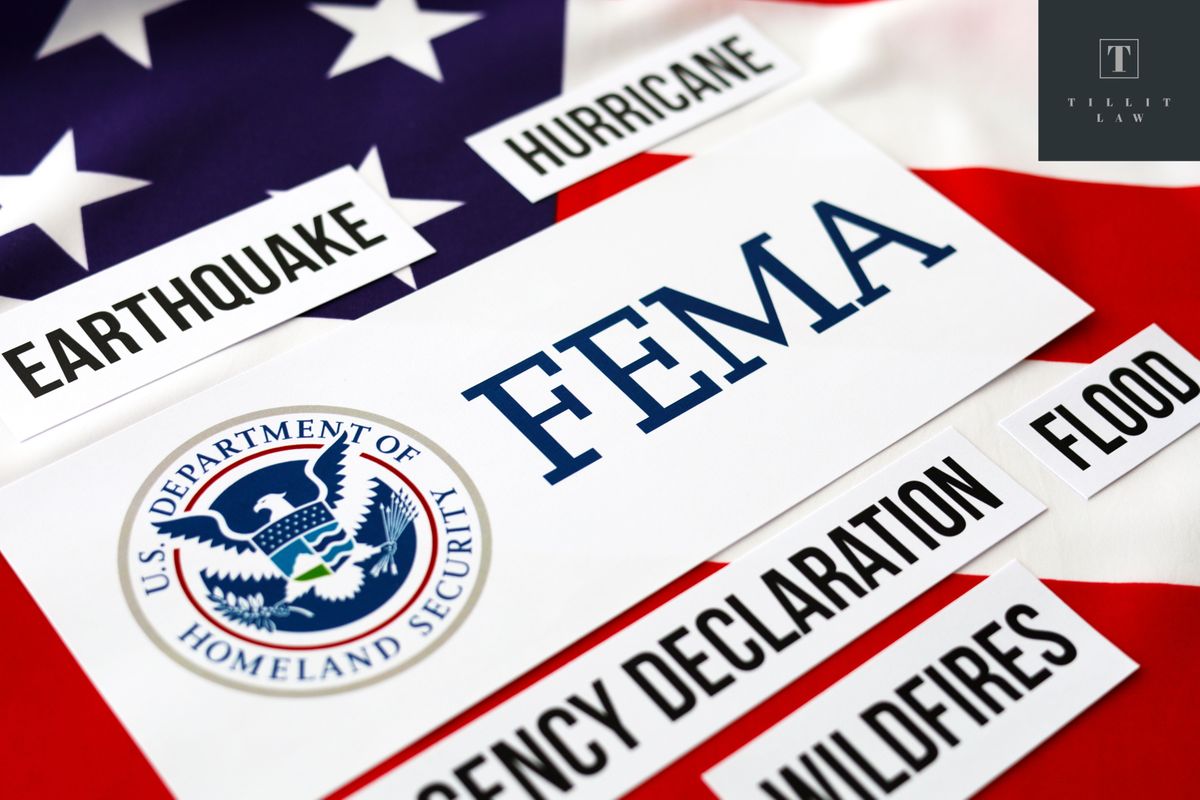Federal government contracting operates under a well-defined and highly regulated framework of rules and procedures. However, unforeseen circumstances like natural disasters or national emergencies often disrupt the typical procurement process. Recognizing this, the Federal Acquisition Regulation (FAR) contemplates the need for emergency acquisition flexibilities for contracting officers under special circumstances such as disasters, contingencies, or presidential declarations so that critical work continues. Notably, FAR 18.001 defines emergency acquisition flexibilities as flexibilities provided with respect to any acquisition that is used to facilitate:
- A contingency operation.
- The defense against or recovery from cyber, nuclear, biological, chemical, or radiological attacks.
- The provision of international disaster assistance.
- A presidential emergency declaration or a major disaster declaration.
FAR 18.1 lists several flexibilities available to contracting officers in emergency acquisitions, provided certain conditions are met. Emergency acquisition flexibilities that are most relevant to the administration of federal government contracts include:
Retroactive Approval of Contractor Overtime
FAR 18.118 gives contracting officers the authority to approve contractor requests for overtime in certain situations retroactively, provided the requirements for overtime approvals are met. FAR 22.103–4(a) requires that overtime approvals only be granted by contracting officers upon a written determination that overtime is necessary to:
- Meet essential performance or delivery schedules.
- Make up for performance delays that are beyond the contractor’s control.
- Eliminate certain production bottlenecks.
Thus, provided these FAR 22.103–4 approval requirements are met, contracting officers may typically approve overtime prospectively. However, in emergency acquisitions, contracting officers may rely on emergency acquisition flexibilities under FAR 18.118 and FAR 22.103–4(i) to approve overtime requests retroactively.
Making Advance Payments
FAR 18.122 allows government agencies to authorize advance payments in sealed bids or negotiated contracts when such advance payments are for contract actions taken under Public Law 85–804, facilitate national defense, and are prescribed by policies and procedures under FAR 50.1.
Use of the No-Setoff Provision
A set-off refers to the government’s right to reduce a contractor’s payments by the amount of the contractor’s debt to the government, regardless of whether the debt is related to the transaction at issue. FAR 18.123 allows contracting officers to include a no-setoff provision when necessary to facilitate national defense and private financing of contract performance in case of emergencies or natural disasters. Notably, however, contracting officers are required to consider the government’s best interests when including the no-setoff provision in situations where a prospective contractor is significantly indebted to the government.
Waiving the Use of Electronic Funds Transfer
The government is generally required to make all contractor payments through electronic funds transfer, subject to certain exceptions in FAR 32.1103. As an acquisition flexibility in emergency acquisitions, FAR 18.124 permits agencies to waive this electronic funds transfer requirement when necessary to support unusual and compelling needs.
Overriding GAO Protest Decisions Staying Contract Award or Performance
The Government Accountability Office (GAO) automatically stays the award or performance of a contract when a pre or post-award bid protest is filed under its bid protest function. As an acquisition flexibility in urgent and compelling circumstances, FAR 18.125 allows government agencies to override automatic bid protest stays issued by the GAO by following agency protest override procedures.
Allowing Rent-Free Use of Government Property
FAR 45.301 outlines the policies and procedures for contractors' use and leasing of government property. As an acquisition flexibility, FAR 18.126 waives standard rental requirements for certain items of government production and research property that meet certain criteria and are part of a program approved by the Federal Emergency Management Agency (FEMA).
Taking Extraordinary Contractual Actions
As an acquisition flexibility, FAR 18.127 allows agencies to take extraordinary contractual actions to facilitate national defense under the extraordinary emergency authority granted by Public Law 85–804 and as prescribed by the policies and procedures in FAR 50.1. Such extraordinary contractual actions include:
- Issuing contract amendments even in the absence of consideration.
- Correcting or mitigating contractual mistakes.
- Formalizing informal commitments.
Agencies are often required to act quickly in case of natural disasters and emergencies. During such times, acquisition flexibilities outlined in the FAR minimize administrative hurdles and allow government agencies to move efficiently. Acquisition flexibilities are utilized in times of emergencies when government agencies must procure medical supplies, communication equipment, food, water, and other necessary items on short notice. The emergency acquisition flexibilities outlined in the FAR provide a crucial framework in case of natural disasters and other emergencies. By understanding these provisions, contractors assisting the government in such situations can fulfill compliance requirements while helping to ensure the continuity of essential relief work.
This Federal Procurement Insight is provided as a general summary of the applicable law in the practice area and does not constitute legal advice. Contractors wishing to learn more are encouraged to consult the TILLIT LAW PLLC Client Portal or Contact Us to determine how the law would apply in a specific situation.





